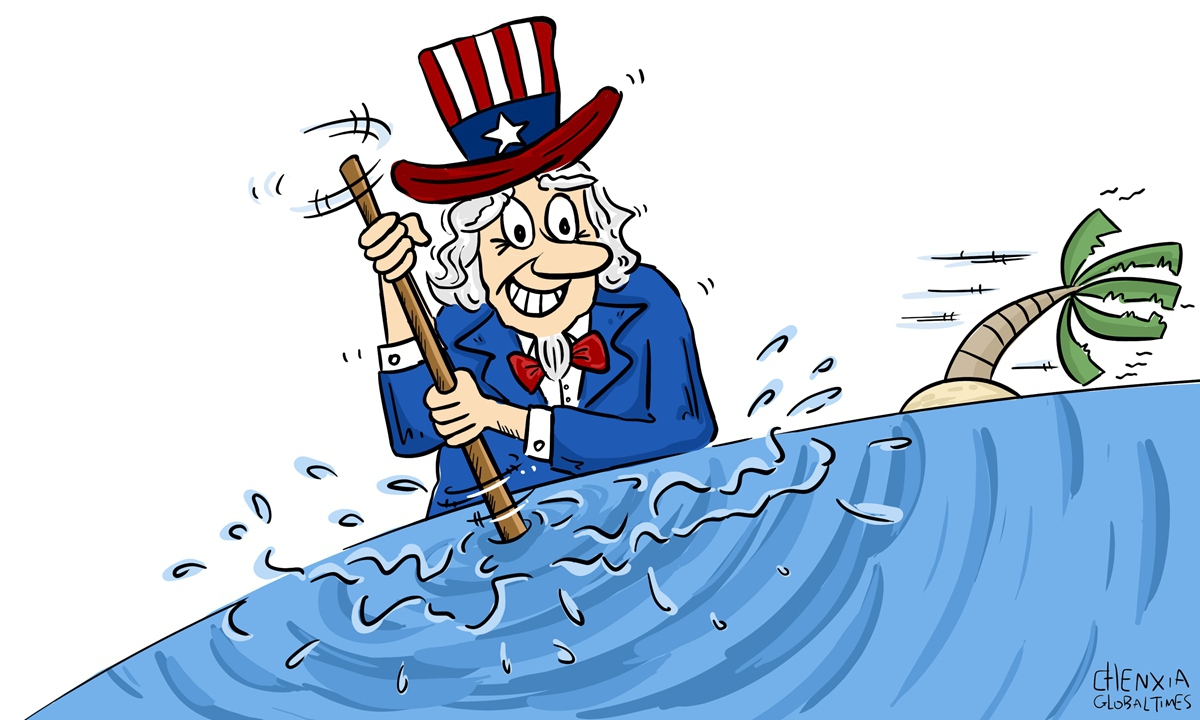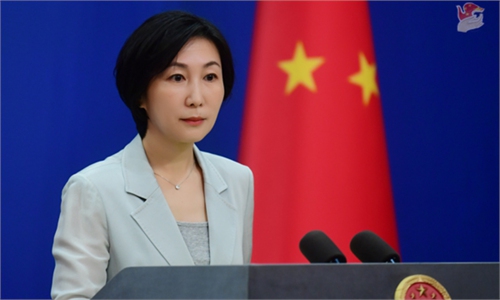
Illustration: Chen Xia/GT
The Philippines and the US will hold their largest ever joint military exercises dubbed "Balikatan" from April 11 to 28 with events in various locations in Northern Luzon, Palawan and Antique.Although the number of soldiers taking part in the annual drills is almost double that of last year, this does not mean the Philippines and the US are truly "shoulder-to-shoulder," as the Filipino word balikatan suggests. It seems that the Philippines will more play a supporting role in the drills, with the US itself being the main actor. In terms of military strength, the weapons and equipment of Philippine forces and their training levels are not comparable to those of the US. The US hopes that the Philippines can provide military bases and uses them against China. The US' attempt to target China through this military exercise is clear. The two countries will stage an amphibious landing on the western island of Palawan facing the South China Sea. It will also be the first time Philippine and US navy frigates fire their weapons toward the South China Sea from waters off Zambales province, north of Manila.
Song Zhongping, a Chinese military expert and TV commentator, told the Global Times that this has nothing to do with protecting the Philippines, but indicates the US is meant to showcase its approaches to "defend the island of Taiwan."
Song said that this drill is related to the four new bases which the Philippines allows the US to access to. From locations in the Philippines such as Luzon and Palawan islands, the US military could cover the Bashi Channel to the south of the island of Taiwan and the Nansha Islands in the South China Sea. "All these show that the US will make the Philippines an important base to target China," said Song.
Since Philippine President Ferdinand Marcos Jr took office last year, he strengthened his country's ties with the US. The US wants to take this opportunity to push the Philippines onto its chariot and to serve its Indo-Pacific Strategy. Its aim is to maintain hegemony in the South China Sea and the Indo-Pacific and turn the Philippines into a spearhead of its China containment maneuvering. The US clearly knows that it cannot stand alone when dealing with China and it can only woo its allies and partners.
Since this year, the US has engaged in extensive joint drills with Asia-Pacific countries. The annual Cobra Gold military exercise in Thailand, which ran from February 28 to March 10, was the largest joint military exercise in mainland Asia and saw the biggest US attendance in a decade. The Iron Fist 2023 drill between the US and Japan was held in February and March. South Korea and the US held their biggest joint field exercises in five years in March. Indian and US air forces are currently holding exercises at the Kalaikunda airbase in West Bengal.
The US hopes to accelerate the strengthening and adjustment of the US alliance system in the region through high-intensity exercises to create regional tensions and even create crises and conflicts.
Li Kaisheng, a research fellow and deputy director at the Institute of International Relations of the Shanghai Academy of Social Sciences, believes that the South China Sea now has been in a stable state, and there is little possibility of accidents. Meanwhile, military cooperation between the US and the Philippines faces obstacles.
Li noted that the diplomacy of the Philippines does not fully lean toward the US despite an improvement in bilateral ties compared to the stagnation of US-Philippine relations during the Duterte era. Generally speaking, the Philippines has maintained a balance between China and the US as well as close economic ties with China.
The Philippines' allowance of US access to new military bases goes against the cause of peace and stability in the South China Sea. Being dragged into potential conflicts and used by the US to undermine regional peace doesn't serve Philippine interests. The peace forces within the country should advocate the government not to pick a side between China and the US, but to focus more on economic development, counter-terrorism and the anti-drug campaign.
For China's part, it should promote regional cooperation, enhance security cooperation with regional countries, and promote the establishment of regional mutual trust by strengthening regional security cooperation mechanisms.
The author is a reporter with the Global Times. wangwenwen@globalitmes.com.cn


